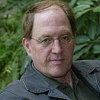Obama’s Cuban Breakthrough
MADRID – Too frequently, leaders become hostages, rather than shapers, of their sociopolitical environment. Too seldom does the world see history-changing steps like Richard Nixon’s trip to China in 1972 or Egyptian President Anwar el-Sadat’s visit to Jerusalem in 1977.
That is why conflicts like that between Cuba and the United States persist for so long. For more than a half-century, no US president was willing to pay the political price for admitting failure and resuming diplomatic relations with the island. But, as his tenure enters the home stretch, Barack Obama seems to have been released from such constraints.
A US president can challenge political constraints only by taking on powerful lobbies. President Jimmy Carter’s success in mediating the Israeli-Egyptian peace settlement, and his bold call for a “Palestinian homeland” (making him the first US president to do so), had much to do with him being deaf to Jewish voices and organizations. Likewise, President George H.W. Bush could not have dragged the recalcitrant Israeli Prime Minister Yitzhak Shamir to the Madrid Peace Conference in October 1991 had he not been willing to take on what he described as “some powerful political forces” made up of “a thousand lobbyists on the Hill.”
Obama is no stranger to pressure – and opposition – from interest groups. But, with the end of his presidency in view, he finally seems to recognize that securing his legacy requires overcoming not just interest groups, but the structure of interest-group politics in America. He is now at loggerheads with the Republican congressional majority over his landmark climate-change agreement with China and his controversial amnesty plan for illegal immigrants.
Likewise, if Obama still hopes to be remembered as the redeemer of the two-state solution to the Israeli-Palestinian conflict, he will have to take on the American Israel Public Affairs Committee next. This would represent a departure from early in his presidency, when, in his bid to broker a settlement, he failed to confront AIPAC. Perhaps his effort to change America’s Cuba policy – which means challenging the highly disciplined lobby opposing the rule of Fidel Castro and his brother Raúl – will show the way.
In the meantime, normalizing relations with Cuba could have far-reaching benefits. Throughout Latin America, Cold War-era resentment of America is likely to ease, and its standing may improve in countries like Bolivia, Ecuador, Nicaragua, and especially Venezuela, which has been a Cuban ideological satellite and the Castro regime’s major economic lifeline. Indeed, it would be unsustainable for Venezuela, nearly bankrupt owing to falling oil prices, to remain on its anti-American course, while the Castro brothers themselves have reconciled with the “gringos.”
Conspicuously, Latin America’s last Marxist insurgent group, the Revolutionary Armed Forces of Columbia (FARC), declared a unilateral cease-fire just hours after the announcement that the US and Cuba would restore diplomatic ties. Over the last two years, Cuba has hosted peace negotiations between FARC and the Colombian government, with full US support. As the world’s biggest consumer of illicit drugs supplied by Colombian producers, the US has a vital interest in a peace deal, which could help reduce, if not end, the traffic.
To be sure, though America’s policy toward Cuba has been one of the Cold War’s last vestiges, Obama’s move will not be a game changer in America’s competition with China and Russia to shape the new world order. But it certainly boosts Obama’s international credibility and improves his prospects of deterring other global rivals. Suddenly, his tough line on Iran and Russia sounds more credible.
Cuba also offers an opportunity to expand the reach of Western liberal values. By maintaining Cold War-era financial subsidies to Cuba, Russia has tried to ensure that the island remained a geopolitical flashpoint, as it was for the Soviet Union. This is no longer an option. In fact, even if the US were not attempting to normalize relations, Russia’s current economic woes probably would have doomed its long-standing – and already much-reduced – support for the Castro government.
Normalization of relations with the US is key to liberalization in Cuba. After all, such changes are best served not by imposing stifling sanctions, or through military “shock and awe” tactics, as in Iraq, but by socioeconomic improvement and diplomatic engagement by external powers.
Indeed, predictions that Cuba might now shift toward a Chinese-style model of political autocracy and economic opening might be accurate only in the short term. In the longer term, the end of the Castro era, together with improved relations with the US, is likely to bring about a repeat of Spain’s transition toward full-fledged liberal democracy after the fall of Francisco Franco.
In Cuba, Obama has shown that transcending the politics of confrontation and sanctions requires diplomatic initiative. It is not too late for him to address other longstanding tensions, such as with Iran and North Korea – not to mention the festering conflict between Israel and Palestine – with similar boldness. And, of course, he should work to mitigate the risk that Russia creates a permanent zone of military tension along its borders with NATO.
Ultimately, world peace is in the hands of leaders. History honors those who dare to challenge the politics of inertia by opening, through inspired diplomacy, new paths to progress.
Copyright: Project Syndicate, 2014.
www.project-syndicate.org
This article is brought to you by Project Syndicate that is a not for profit organization.
Project Syndicate brings original, engaging, and thought-provoking commentaries by esteemed leaders and thinkers from around the world to readers everywhere. By offering incisive perspectives on our changing world from those who are shaping its economics, politics, science, and culture, Project Syndicate has created an unrivalled venue for informed public debate. Please see: www.project-syndicate.org.
Should you want to support Project Syndicate you can do it by using the PayPal icon below. Your donation is paid to Project Syndicate in full after PayPal has deducted its transaction fee. Facts & Arts neither receives information about your donation nor a commission.



















